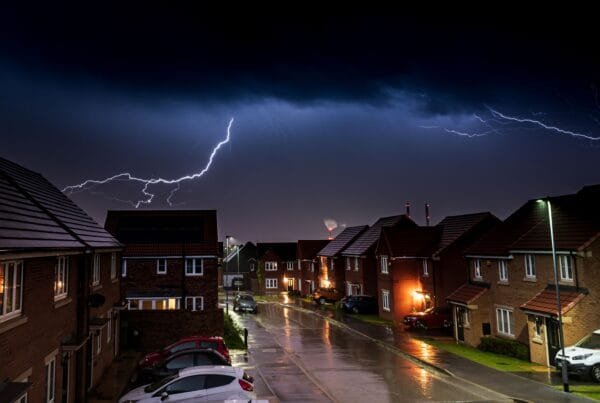For a lot of people, getting into crisis readiness can come with an unexpected obstacle: resistance from a spouse or partner. Just because you think it would be wise to make disaster plans and store food and water doesn’t mean that your significant other will.
For some couples, the added expense of buying emergency supplies and gear can create tension. For others, the struggle is emotional, or even philosophical. Daily life can be challenging enough. Sitting down to think about disasters that may or may not happen can feel like an unneeded dose of negativity.
If you find yourself in this situation, what can you do to make crisis readiness a positive journey for your relationship, and stay on a unified front?
#1 Think of it as insurance
In our modern society, we are insured for every imaginable contingency. We have life insurance, home insurance, car insurance, health insurance, umbrella insurance, and so on. We don’t carry these insurance policies because we expect a worst-case scenario to happen. We just know that if we get sick or get into a car accident or have our house flooded, we can’t afford not to be insured.
Crisis readiness is the same thing. Just because you are prepared doesn’t mean that a disaster is going to happen. But if a natural or man-made disaster does affect your family, you can’t afford not to be ready.
Thinking of crisis readiness as another form of insurance can help you logically explain the need for taking steps to be prepared. You’re thinking ahead, and insuring against possible bad outcomes – just in case.

#2 Know your threats
With so many possible disaster threats to consider, crisis readiness can feel overwhelming. Speaking too broadly about disasters might cause your partner to simply shut down. It’s impossible to be ready for everything, so why even try?
The key to handling this discussion is knowing your most likely threats. Understanding that you need to be ready for a wildfire, or an earthquake, or severe storms is much more manageable than trying to be prepared for every possible disaster.
Being knowledgeable about your local threat landscape will help you present recommendations to your partner in a clear, logical manner. If you’ve taken Guide to Disaster Readiness, you can even share your Threat Assessment results with your partner as a jumping off point.

#3 It’s not about you
If your spouse struggles with the thought of spending time and resources on emergency supplies and training, it’s important to remind them that this isn’t just about the two of you. If you have children, they are the number one reason to prepare for disasters.
Your children will depend on you when things go sideways. As a protector, you never want to be caught off guard and unable to sustain your kids through a worst-case scenario.
#4 Don’t panic
Once you start your crisis readiness journey, it’s easy to get carried away. The list of contingencies and solutions is never-ending. While it’s wise to be ready for as many scenarios as possible, with as many supplies as you can manage, you don’t need to do it all at once.
Crisis readiness is a life-long process of building skills, assessing new information, and purchasing the appropriate supplies and equipment.

The most important first step is to get your household ready for the most likely disasters, including a grid-down crisis. You don’t have to rush out and buy a 1-year supply of food.
Having enough food, water, and medical supplies on-hand to sustain your family for two weeks will put you in an excellent position to ride out the majority of likely disasters. Make sure to have an emergency water purification system in place.
From there, you’ll have countless opportunities to increase your readiness further – but it doesn’t have to happen overnight. Taking a measured approach to crisis readiness will make it more palatable to your partner. It will also help you avoid burnout, as well as financial strain.
Parting Thoughts
You’ve listened to your instincts and you’re ready to take action to get your family ready for any crisis. This first step is probably the most important one of all, and it’s exciting! Just remember that your spouse likely hasn’t had the benefit of the mental thought process that has brought you to this point.
Take the time to explain exactly what the threats are, how you can take practical steps to be ready, and how your family will benefit from being more prepared.



